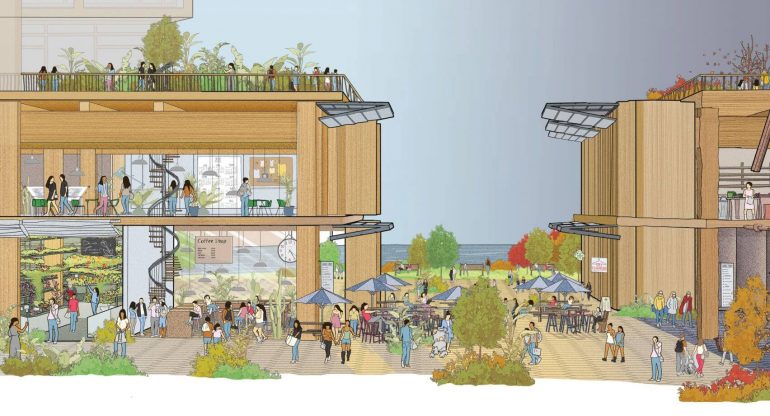Today, Sidewalk Labs CEO Dan Doctoroff appeared before the federal government’s Standing Committee on Access to Information, Privacy and Ethics, defending the organization’s plans to develop the Quayside project.
During testimony, Doctoroff emphasized the fact that while Sidewalk Labs has faced extensive criticism since winning the request-for-proposal (RFP) by Waterfront Toronto for the Quayside project, it is doing all its planning in plain view of the public and with public consultation.
“We are unusual for a company because we are making our plans in real time and in the public eye,” he stated, noting that Sidewalk Labs has hosted a number of public round tables, has consulted with policy officials, panels, spoken with digital strategy advisors, and invited the public to visit its location on the waterfront in Toronto.
He also argued that Sidewalk Labs has engaged with “more than 20,000 Torontonians” about Sidewalk Labs plans, also emphasizing that the company has yet to submit its final proposal to Waterfront Toronto.
Doctoroff defended his company against a number of concerns and issues that have been raised about the project, including John Broadhead (who also attended the committee hearing) joining as its director of policy and strategy after previously working as chief of staff for the Infrastructure Minister.
The CEO also testified to the committee on how Sidewalk Labs intends to make money, noting three key strategies, with two focusing more on the real estate and infrastructure, with only the third focusing specifically on technology innovation.
Doctoroff noted the company plans to monetize a small percentage of the project in terms of real estate, noting the potential for building a Canadian Google headquarters on the land.
He also suggested that Sidewalk Labs is prepared to finance infrastructure in the area “that wouldn’t otherwise be able to be financed.” He pointed to, and addressed a number of questions regarding, plans to finance and help build LRT transit through the land, something that he has previously stated is required for the Sidewalk Labs proposal to succeed.
The third way Sidewalk Labs plans to make money is through developing technology surrounding its urban data collection. Doctoroff didn’t give solid examples of products but suggested the company may use urban data to create things to better manage curbs and streets, traffic, and other aspects to cities that have the potential to be improved upon. Sidewalk would look to develop and bring these types of products to market not just in Toronto but around the world.
Doctoroff also responded to questions surrounding the recent Ontario auditor general’s report, which claimed Sidewalk Labs received more information that other proposals when creating its RFP, and noted it may have been in talks with high-level government officials.
Committee members including NDP ethics critic, and the committee’s vice-chair, Charlie Angus, who has been particularly vocal about his feelings about Sidewalk Labs, drilled Doctoroff on points from the auditor’s report, claiming it showed the company received preferential treatment.
Doctoroff and Micah Lasher, head of policy and communications for Sidewalk, who also faced today’s committee defended Sidewalk Labs against the report. Doctoroff stated that “the auditor general never used the term preferential treatment” in the report. Both also claimed that the company did not receive any additional information that was not available to other bidders, and the few maps and goods transportation reports it did receive were already public.
The Sidewalk Labs team also answered a number of questions pertaining to many other concerns brought up by the committee members, including data privacy. They stated that the company plans to comply with all levels of government regulations, even if the Canadian government were to adopt policies similar to those recently adopted by the EU.
Developing…


